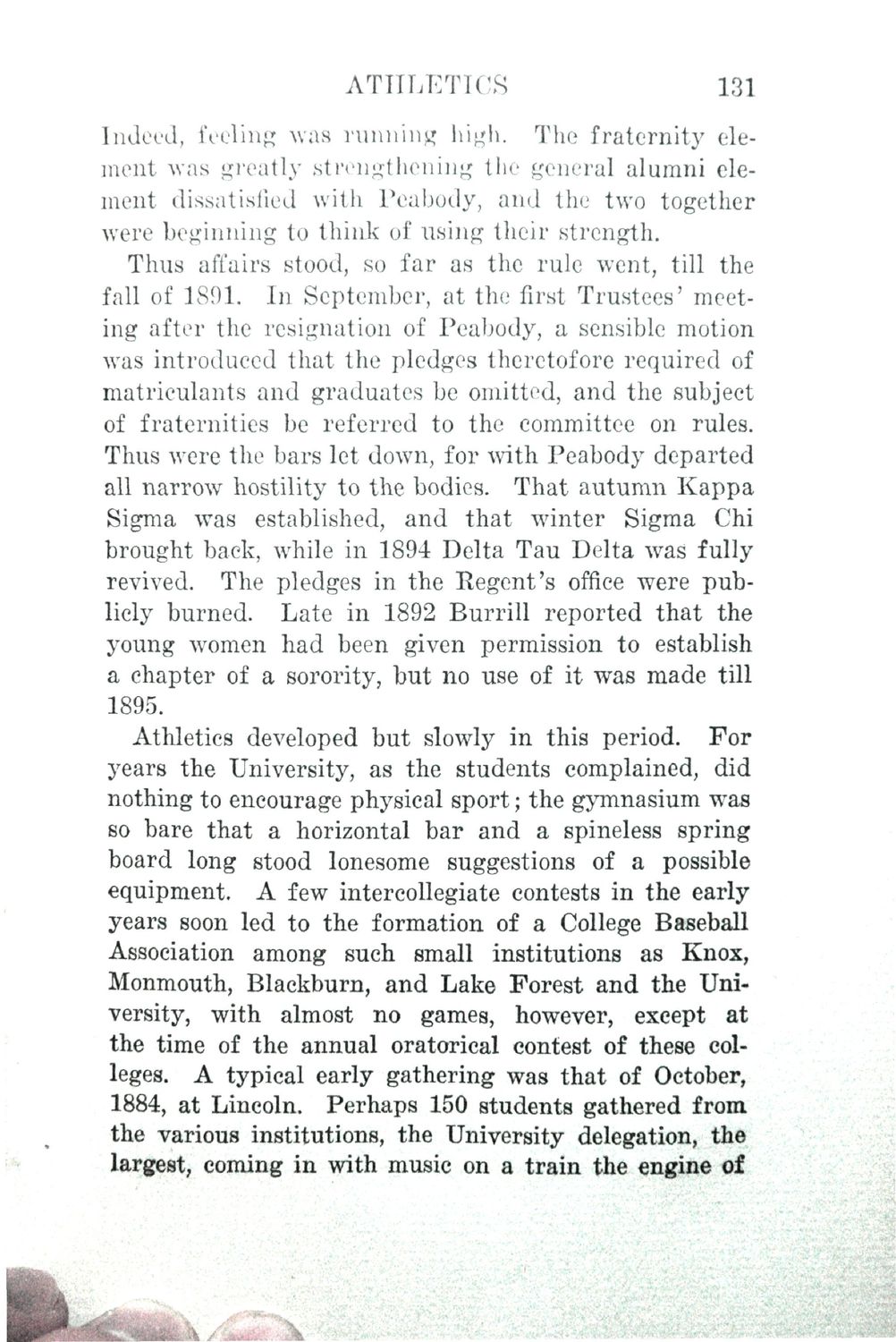| |
| |
Caption: Book - History of the University (Nevins)
This is a reduced-resolution page image for fast online browsing.

EXTRACTED TEXT FROM PAGE:
ATHLETICS 131 Indeed, feeling was running high. The fraternity element was greatly strengthening the general alumni element dissatisfied with Peabody, and the two together were beginning to think of using their strength. Thus affairs stood, so far as the rule went, till the fall of 1891. In September, at the first Trustees' meeting after the resignation of Peabody, a sensible motion was introduced that the pledges theretofore required of matriculants and graduates be omitted, and the subject of fraternities be referred to the committee on rules. Thus were the bars let down, for with Peabody departed all narrow hostility to the bodies. That autumn Kappa Sigma was established, and that winter Sigma Chi brought back, while in 1894 Delta Tau Delta was fully revived. The pledges in the Regent's office were publicly burned. Late in 1892 Burrill reported that the young women had been given permission to establish a chapter of a sorority, but no use of it was made till 1895. Athletics developed but slowly in this period. For years the University, as the students complained, did nothing to encourage physical sport; the gymnasium was so bare that a horizontal bar and a spineless spring board long stood lonesome suggestions of a possible equipment. A few intercollegiate contests in the early years soon led to the formation of a College Baseball Association among such small institutions as Knox, Monmouth, Blackburn, and Lake Forest and the University, with almost no games, however, except at the time of the annual oratorical contest of these colleges. A typical early gathering was that of October, 1884, at Lincoln. Perhaps 150 students gathered from the various institutions, the University delegation, the largest, coming in with music on a train the engine of ra
| |